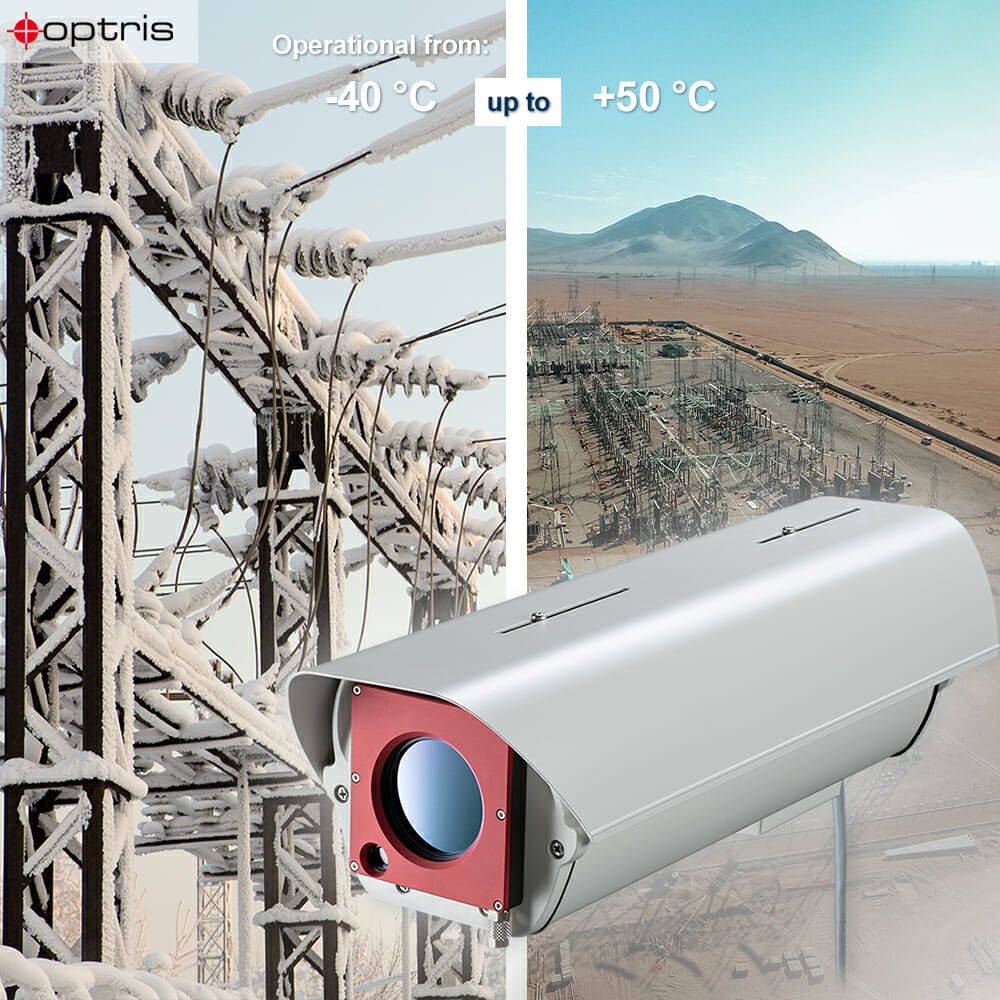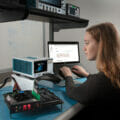Use infrared cameras under harsh environmental conditions

High or very low temperatures, humidity and dust – such environmental conditions pose great challenges for electronics. In order to be able to use sensitive devices without problems, protective measures are usually necessary. In order to be able to use the infrared cameras of the PI and Xi series, for example, even under adverse conditions, Optris now offers a new outdoor housing that ensures optimum protection for the sensitive devices. The new housing offers for the first time the possibility to integrate an infrared camera and an HD video camera together in one compact system. A compact USB server is also integrated in the housing.
Optional air purge attachment
The new housing complies with protection class IP66 and can therefore also be used in dusty or humid environments without any problems. In order to be able to use the infrared camera even at very low temperatures, an electrical heating element is included that switches on automatically at temperatures below +15 °C. A ventilation fan distributes the warm air evenly within the housing. This means that the system can also be used at temperatures as low as -40 °C. In warmer areas of use, temperatures up to +50 °C are possible.


The optionally available air purge unit, which continuously purges the protective window of the housing with compressed air, ensures that no dust or condensing moisture can collect there. The infrared camera thus always has optimum visibility and can measure temperatures reliably.
Optional HD video camera
Together with the optional video camera with a resolution of 1280 x 720 pixels, combined thermal and optical condition monitoring or fire protection applications can be ideally implemented.


To transfer the images from the infrared camera and the video camera, the USB server, which is also integrated in the housing, can be used. Here, the data from both cameras is combined into a single stream; transmission then takes place via an Ethernet line. This enables easy integration of the cameras into existing video controlsystems.








